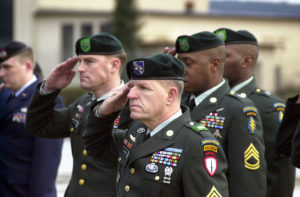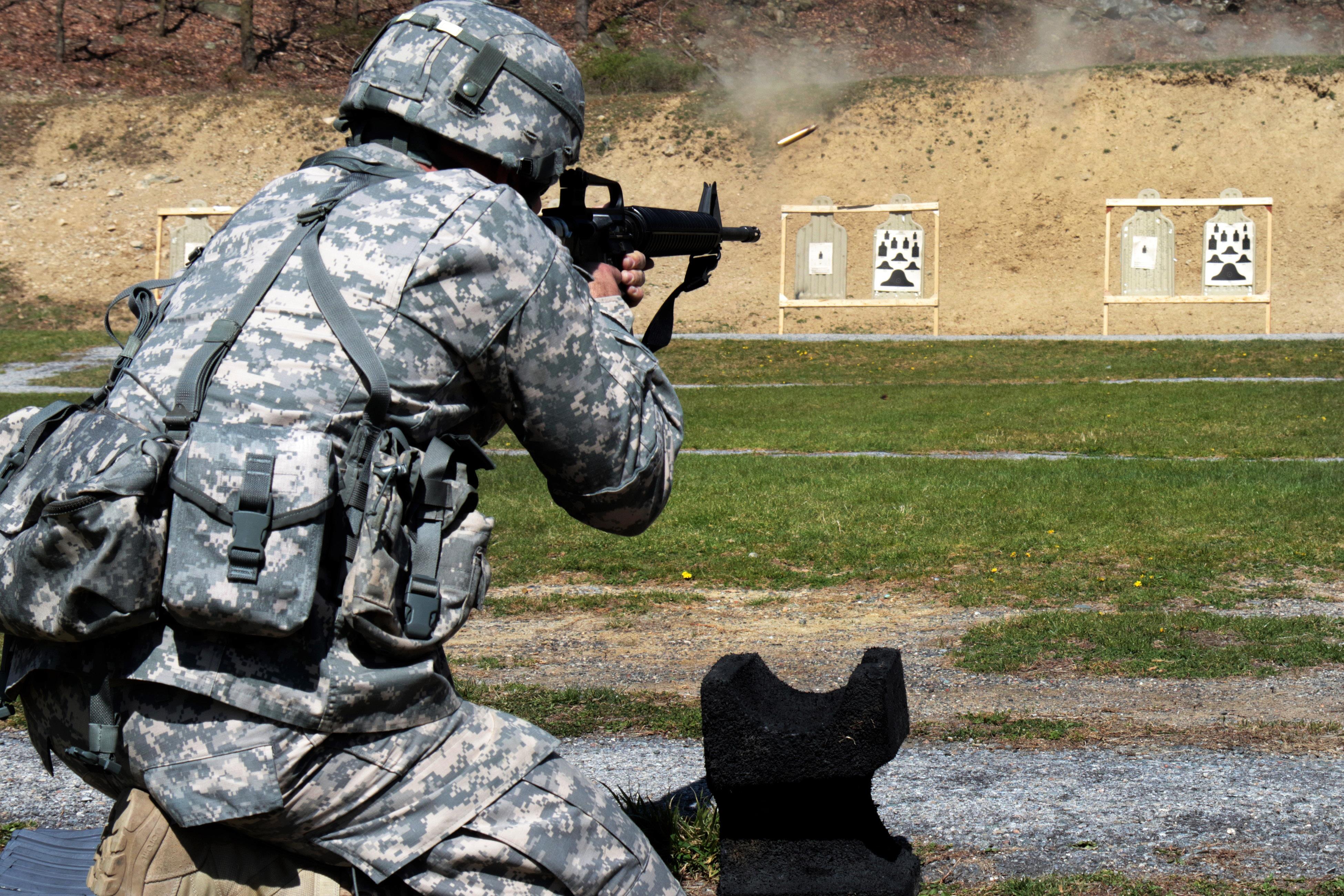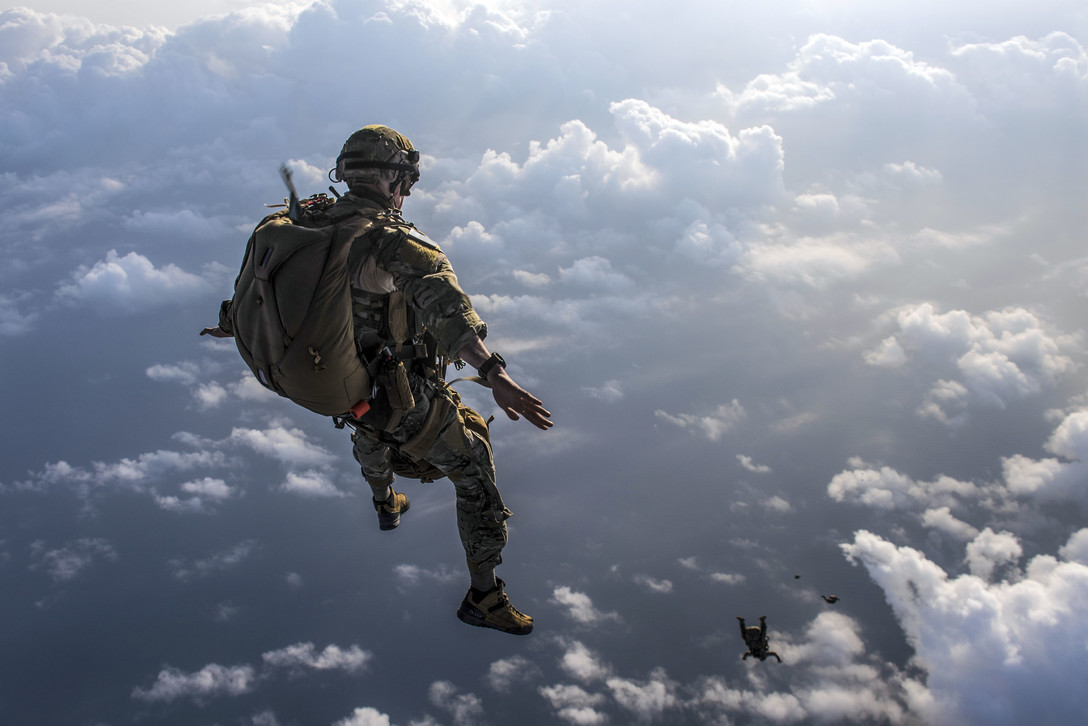
Veterans love our Creeds. The Marines have their Rifleman’s Creed, The Army has the Creed of the Noncommissioned Officer and the Soldier’s Creed. Each of the other services…Air Force, Navy, Coast Guard…have their own Creeds. There are several similarities, and quite a few differences, but one of the key connecting factors is something that I never quite understood before: an iron resolve to be, to do, to accomplish. The imperative WILL.
As an Army veteran, I am most familiar with The NCO Creed and The Soldier’s Creed. Of the many important and critical lines in the NCO Creed, one of the most important to me was always: All Soldiers are entitled to outstanding leadership: I will provide that leadership. The central part of the Soldier’s Creed makes up the Warrior Ethos of the Army: I will always place the mission first. I will never accept defeat. I will never quit. I will never leave a fallen comrade. The key word in each of these lines: WILL.
Above all, we must realize that no arsenal, or no weapon in the arsenals of the world, is so formidable as the will and moral courage of free men and women. -Ronald Regan
The NCO Creed does not say, “I may provide outstanding leadership” or “I choose to provide outstanding leadership at some points, but not at others.” The Warrior Ethos does not say, “I might sometimes place the mission first” or “I may quit”. The word, and concept, of WILL, indicating an iron and unwavering resolve, is repeated throughout each of the service’s individual Creeds.
Starting with the Oath of Enlistment that each enlisted member of the Armed Forces takes, regardless of service: I WILL support and defend the Constitution of the United States against all enemies, foreign and domestic; that I WILL bear true faith and allegiance to the same; and that I WILL obey. The Oath of Office that all Commissioned Officers are required to recite upon commissioning has this imperative as well, stating that they “WILL well and faithfully discharge the duties of the office upon which” they enter. There is no question and no grey area about what is going to happen.
Throughout the Creed of a United States Marine, the imperative of the word WILL is repeated several times, including “I will…” at the end of the third line, “We will hit…” and repeatedly throughout the entire Creed. The unquestioning WILL is indicated with the phrase, “I will ever guard it against the ravages of weather and damage as I will ever guard my legs, my arms, my eyes, and my heart against damage.” There is no “may” here, no “might” or “could possibly”…only the certainty of will.
Short and to the point, the Sailor’s Creed indicates the imperative by repeating the Oath of Enlistment and Oath of Office in the dedication of supporting and defending the Constitution and the United States of America, and obeying the orders of those appointed over them. The long and storied history of the Navy is also represented in each Sailor’s awareness, stating, “I represent the fighting spirit of the navy and those who have gone before me to defend freedom and democracy around the world.”
Sometimes the imperative is represented by what will not be allowed, rather than what will be done. The Airman’s Creed repeats, “I AM” several times and concludes their creed with: “I will never leave an Airman behind, I will never falter, and I will not fail.” There is no question the resolve behind these statements.
The Creed of the United States Coast Guardsman also repeats the imperative WILL several times, and even uses the imperative SHALL. In a phrase that speaks to this old Sergeant’s heart, the Coast Guardsman states, “I shall sell life dearly to an enemy of my country, but give it freely to rescue those in peril.” The Coast Guardsman does not say that they “may, perhaps, sell life dearly.” They say that they are going to. Without a doubt.
There is something admirable in this uncompromising will represented in each of these Creeds. This is the drive of sacrifice. This is the drive of service. This is the drive that is within each and every service member, and sometimes is unfathomable to those who have never served in the military. The WILL in each of these Creeds is represented in the look of determination in each service member’s eyes as they gather their determination to accomplish a task, and is represented in each tear shed at the playing of Taps. The iron resolve of WILL is represented in the salute of the World War II and Korean War veteran on Memorial Day, each weathered hand and straightened back knowing exactly what the cost of exercising this will entails, and it is represented in the upraised hand of the newest recruit and commissioned officer, who have yet to fully understand the meaning of the imperative that they are reciting.
Do all service members live by these words? Sadly, no. If that were the case, there would be no inter-service crime, there would be no sexual harassment or Military Sexual Trauma. There would be no toxic leadership. Of the many things that I am, a realist is certainly one of them, and I am not of the camp that thinks that service and sacrifice can cover a multitude of sins.
What I do believe in is the basic honor and integrity of those who have served in the military, and choose to assume honor in them until proven otherwise. For those who did their duty, praise and respect are rightly deserved.
Getting out of the military though…did we lose that will? Did we lose that iron resolve, the desire to action, that indomitable capability that we found in our various boot camps and basic trainings, and in innumerable experiences throughout our service? Did we lose the values that were instilled within us, not through repetition of mindless phrases, but by recognition of the stirring of our soul? Whether you served three years or thirty-three, the values you learned in the service can serve you well in life. The imperative, the “I AM” and “I WILL,” make you a strong individual, capable of overcoming great adversity and achieving amazing things.
The only thing that you need say to yourself: “I Will Remember.”




2 Comments
Moral Injury: The Impact of Combat on Veteran’s Individual Morality | Head Space and Timing · August 18, 2016 at 7:06 am
[…] that attempts to instill in them “core values” and a “warrior ethos.” Even the oaths of enlistment and appointment are action-oriented and value […]
Veterans: Use Your Skills to be Indestructible – Head Space and Timing · July 6, 2017 at 4:00 am
[…] branch of service has it’s creeds and mottos. The unwavering resolve that we had while we were in the military can be applied to your post-military life as well. As an Army veteran, I am most familiar with the […]
Comments are closed.